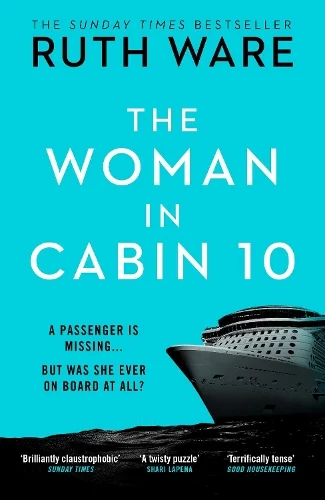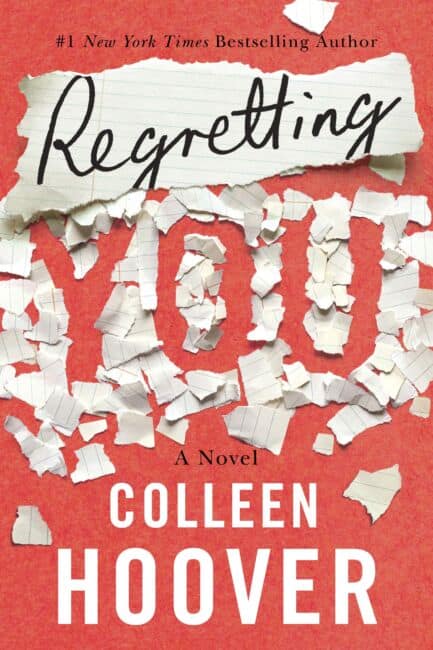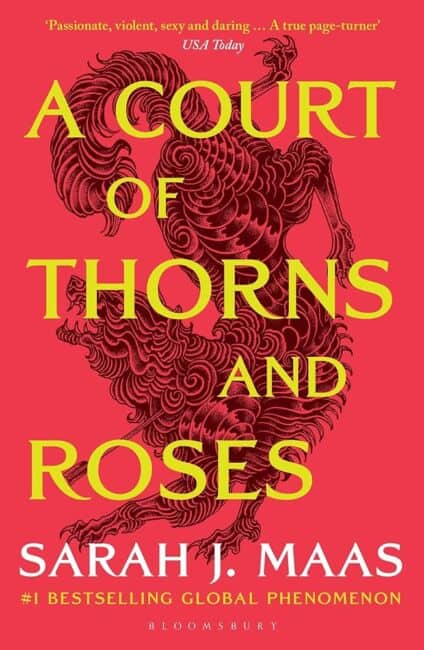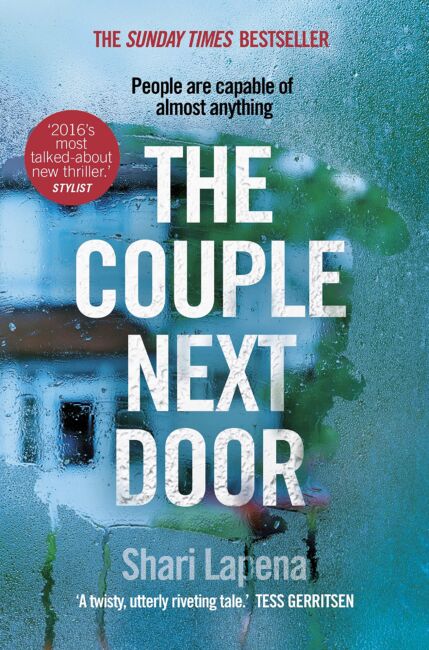10 Books You Must Read in Your Lifetime
From early childhood through to our teenage years and right up until old age, books are our unfailing companions. But, even if you were to read a hundred books a day for the rest of your life, you wouldn’t make a dent in the literature out there.
Since the invention of the printing press back in 1440, there have been over 129,000,000 books published. So, how are we to know which ones to read? And, more importantly, where do we start?
We’ve put together this short guide with a few of our favourites — from heartwarming stories to necessary life advice and perilous tales — to help you get acquainted with a few of the books you just can’t afford to miss in this lifetime.
1. The Alchemist, Paulo Coehlo (1988)
The Alchemist has been heralded as one of the greatest allegorical novels of all time, following the story of Santiago, a shepherd boy in search of treasure. On his travels, Santiago meets ‘the alchemist’ in the Egyptian desert and the story unfolds.
Originally written in Portuguese, this book quickly became an international bestseller after it was translated. The book centres around the concept of finding one’s destiny and offers a series of prescriptive, self-help messages that readers have been finding comfort in for years now.
The main foundation of the novel hinges upon the international folktale style, and has a comforting, didactic quality. This is an excellent book to read when you’re feeling lost and are in need of some guidance.
2. Great Expectations, Charles Dickens (1860)
This book is not only a classic novel, but now a quintessential part of British culture. From Dickens’ literary origins, this story has been translated, transformed, adapted, and, quite frankly, turned inside out by theatre and television for decades. Even as recently as May 2023, the BBC has adapted this novel on the screen, bringing the iconic and captivating characters to life in new and interesting ways.
From the escaped convict hiding in the marshes to little Pip who shows so much kindness and determination, the characters in this novel are distinctly vivid and each bring a lesson in nature and morality to the story. Not only is this book a literary masterpiece with multiple twists and turns, it offers a lesson in suffering and humility.
3. To Kill A Mockingbird, Harper Lee (1960)
A novel well before its time, this book has been doing an excellent job at making readers uncomfortable for decades now, being banned and challenged until as recently as 2016 in schools and by local authorities. With its overt commentary on race, inequality, and injustice in the Deep South, this novel sheds a harsh light on the political climate and attitudinal prejudices of its time.
A necessary read, Lee’s novel is told through the eyes of the two children, Scout and Jem, as they navigate a world in which racial inequality is rife. The characters have been praised for their ability to illuminate the wrongs of the Deep South through their strong attitudes. Fundamentally, though, this is a novel about the ways in which humans treat each other and encourages widespread compassion among all its readers — no matter where they are in the world.

4. Alice’s Adventures in Wonderland, Lewis Caroll (1865)
Despite originally being published as a children’s book back in 1865, this is definitely a book that everyone should read, adult or otherwise. Even if only as an exercise in refreshing your imagination, the vivid colours, scenery, and events in Carroll’s story are a breath of fresh air — as are the characters.
Viewing the world through a kaleidoscope of colour, Carroll writes in a quick-witted, bold, and fast-paced style that leaves you disorientated, confused, and — most powerfully — inspired. Despite being almost 150 years old, the core themes of discovery, courage, bravery, and curiosity are, without a doubt, timeless.
5. If This Is A Man, Primo Levi (1947)
Up next is a touching, powerful memoir by Primo Levi about his experience in a concentration camp. Levi is an Italian Jew who was arrested as part of the Italian anti-fascist resistance and sent to Auschwitz. Published during the Second World War, this memoir is fraught with political complexity and hardships, focusing on his imprisonment in Auschwitz from February 1944 until his liberation on the 27th of January 1945.
The prose style of this book has been applauded time and time again for its contrast to the horrors of the events being described. While you really have to read it to understand what we mean, Levi himself has said, “I thought that my word would be more credible and useful the more objective it appeared and the less impassioned it sounded; only in that way does the witness in court fulfil his function, which is to prepare the ground for the judge. It is you who are the judges.”
And readers of this memoir are invited to do just that: judge.
6. One Hundred Years of Solitude, Gabriel García Márquez (1967)
Dubbed one of “the world’s most famous books” by Penguin, Márquez has been awarded a Nobel prize for his literature.
Telling the story of seven generations of a family, the town they built, and the secrets that unfold throughout time, this novel is a prime example of magic realism in operation. Humorous but also deeply touching, the novel ventures into complex themes such as the inescapability of history, the influence of the past on the present, and the thin line between what’s real and what’s not.
This is an excellent book to read if you want to alter your perception of reality and get better acquainted with philosophical concepts such as fatalism and ‘the afterlife’.
7. Wide Sargasso Sea, Jean Rhys (1966)
While many of us will be familiar with Charlotte Brontë’s Jane Eyre, not all of us have had the pleasure of reading Jean Rhys’s Feminist and anti-colonial fictional ‘prequel’. (Note: you do not have to have read Jane Eyre to enjoy Rhys’ retelling).
An important bit of fiction, Wide Sargasso Sea gives an imagined past to ‘Bertha’, Mr Rochester’s wife, rewriting her role in the novel by awarding her a history that humanises her.
Above anything else, this novel self-consciously teaches readers the importance of narratives in life. As Rhys injects new life and meaning into ‘the madwoman in the attic’ she also forces readers to confront their own prejudices and misconceptions about identities that are so often marginalised or “Othered”.

8. Things Fall Apart by Chinua Achebe (1958)
Another critical piece of postcolonial literature, Things Fall Apart is highly regarded as the archetypal modern African novel in English.
Following the story of Okonowo, a famous warrior among his clan, the powerful story documents the tragic trajectory of what happens when outsiders theatre this protected way of life, touching on the tentative topics of pride, anger, and self-control. This book is held in such high regard due to its important exploration of cultural identity in relation to both gender stereotypes and British colonialism.
9. Ulysses, James Joyce (1922)
Very few books have come under criticism as much as Ulysses has, being threatened with censorship, years of controversy, and even legal action.
Probably the most ‘literary’ of the books on our list, Joyce’s novel is highly sophisticated and a quintessential example of modernist prose. If you’re looking to develop your appreciation of literature and literary techniques, this is the deep end to dive into – but bring a study guide for the more cryptic parts.
A perfect demonstration of the stream–of-consciousness technique, this book uses an inner monologue to reach new heights of psychological and emotional introspection. A mesmerising story, this has definitely earned its place as a strong contender for one of the greatest novels of the Twentieth Century.
10. Grapes of Wrath, John Steinbeck (1939)
Last, but by no means least, Steinbeck’s long and winding Grapes of Wrath offers a rewarding challenge to any reader who dares to negotiate its pages of prose.
A modern-day tale of hardship and struggle, this has been crowned Steinbeck’s finest novel. Written beautifully, although with a devastating ending, this novel proffers a universal account of searching for a better future, gruelling hard work, and human struggle.
Read as widely as possible
To finish, we thought we’d leave you with a quote from Dr Seuss, “The more that you read, the more things you will know. The more that you learn, the more places you’ll go.”
If you’re looking for guidance on your next read, perhaps something modern or more casual reading, be sure to keep up with our blog, latest releases, and top picks.




